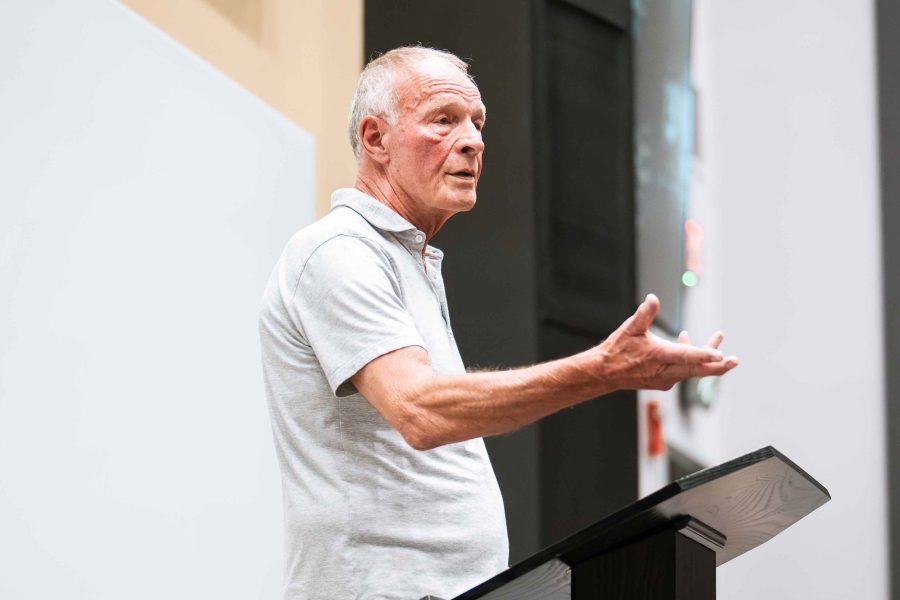Advancing surgery-free treatment
Sara Commander will often help Lindsay Tise with strength training exercises at the gym.
At 94, Tise suffers from knee osteoarthritis, a debilitating yet common ailment for older Americans that makes physical activity both difficult and painful. Commander helps Tise with leg presses, lifting weights and participating in cardio exercises at Wake Forest University’s Clinical Research Center, a state-of-the-art facility located next to BB&T Field.
“I want to be a physician’s assistant one day,” said Commander, who is a rising senior and biology major. “This is really a great opportunity for me to get out of the lab and get some real world experience.”
As counterintuitive as it may seem, Tise said the strength training has his knee feeling better than it has in more than a decade.
“The exercise seems to be working,” he said. “I feel better, move better, and it has even helped my golf game. I now play once a week, weather permitting. I’m driving the ball further and straighter and enjoying it more.”
Tise is one of 372 individuals over the age of 55 that will participate in Wake Forest’s Strength Training for Arthritis Trial or START, a first-of-a-kind, 5-year study to test the benefits of high intensity strength training, low intensity strength training, and healthy living on older adults with knee OA.
More than 4.5 million Americans have had knee replacement surgery due to knee osteoarthritis. The procedure is expensive-often costing more than $20,000 per knee- and may not be necessary for everyone.
Previous studies at Wake Forest have shown that high intensity strength training is safe for older individuals and may also slow the progression of knee osteoarthritis.
START researchers hope to confirm these findings in a supervised, clinical setting. The end goal is to develop a surgery-free and effective option to treat knee pain and loss of mobility associated with knee osteoarthritis, says Stephen Messier, professor and director of the J.B. Snow Biomechanics Laboratory at Wake Forest University.
More participants are needed before the benefits of the new treatment can be realized however. Messier says the START team is currently seeking volunteers to participate in the 18-month trial.
Participants must be 55yrs of age or older, have knee pain on most days of the week, and not be involved in a formal strength-training program.
“Every participant receives individualized attention during the study,” said Monica Carpenter, an exercise interventionist for START. “It offers a brand new way to deal with joint pain for a population of people who have not done this kind of strength training before.”
Carpenter says study volunteers will be randomly assigned to either a strength training group or a group that attends healthy living classes along with stretching exercises.
Tise said he doesn’t see why someone with knee pain wouldn’t participate in the study.
“Nothing really seemed to be working for me so I decided to give this a try,” he said.
He added that it is great working with Wake Forest staff and students as well.
“It has helped me so much that I don’t see why it wouldn’t help someone else in a similar situation,” he said.
Categories: Research & Discovery, University Announcements
Media Contact
Wake Forest News
media@wfu.edu
336.758.5237



